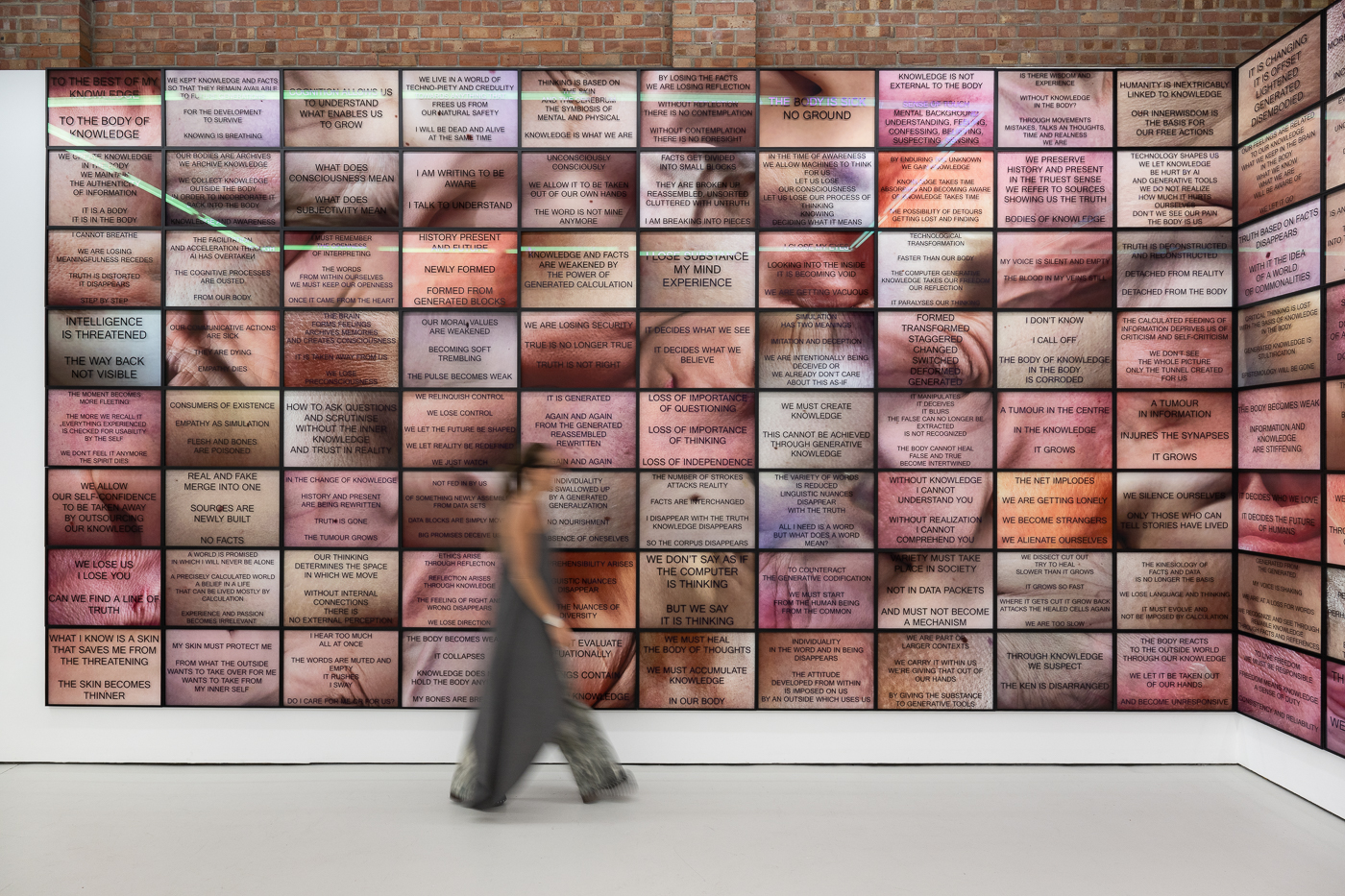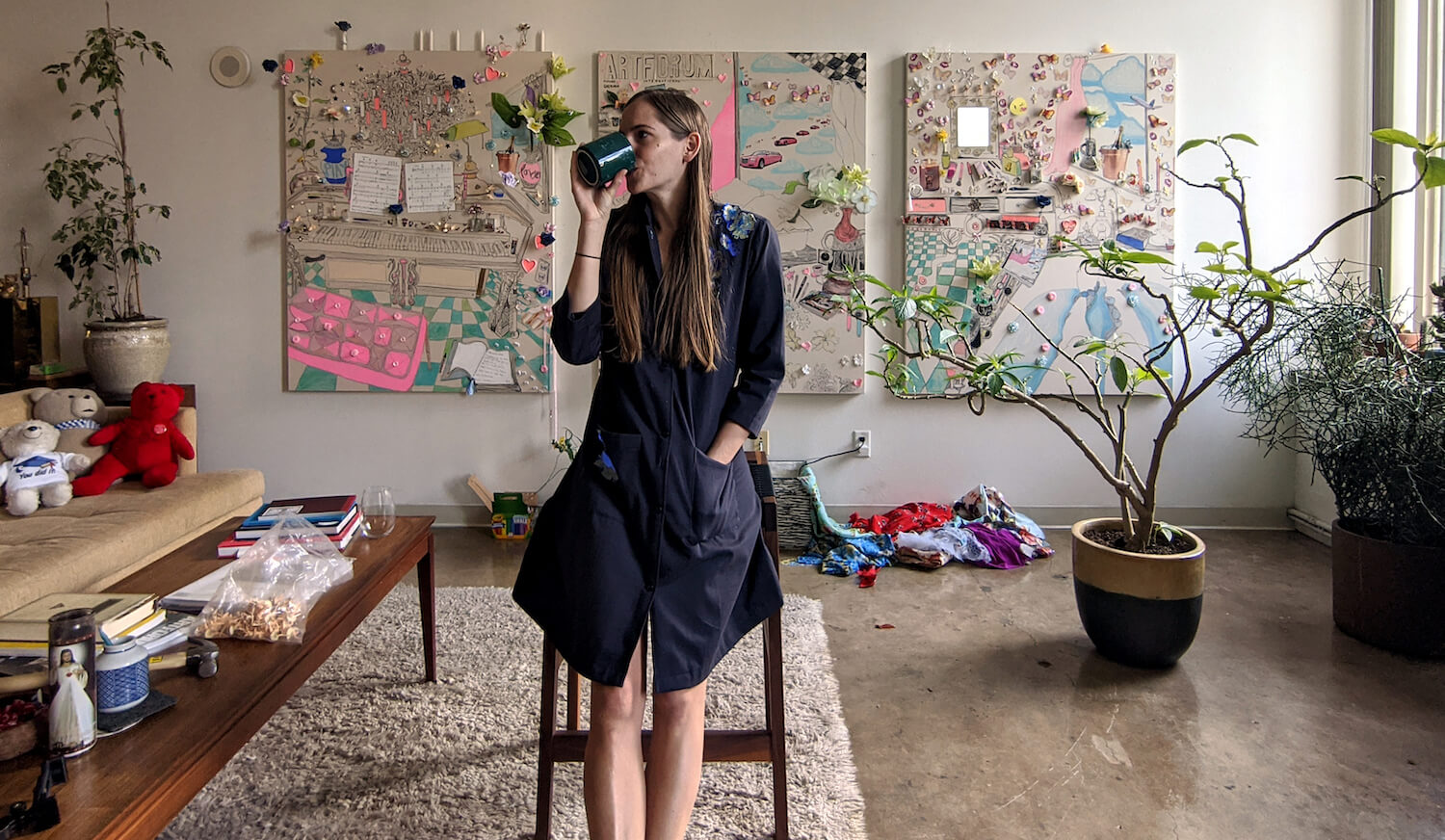Gretchen Andrew interviewed by Artland about her search engine manipulation and hacking the US election
How ‘SEO Artist’ Gretchen Andrew Hacked The US Election and The Art World
By Adam Hencz
“The way technology fails around desire and hope is beautiful and potentially positive for our humanity.”
Gretchen Andrew
The US has elected its 46th president after a hard-fought race on Election Day, which slowly turned into an intense ‘Election Week’, leaving people all over the world impatiently skimming through news sites, Twitter, and their text messages for a sign on a possible outcome of the election. Those typing the words “the next American president” into the Google search bar eager to find a piece of an oracle from the worldwide web in despair, found themselves eye-washed, facing vivid vision boards with owl stickers, foam roses, and butterfly bows: the artworks of Gretchen Andrew.
The LA-based artist programs her vision boards to manipulate and seize the power of the largest tech companies. A self-proclaimed internet imperialist whose works are co-authored by search engines, Andrew works with digital means in which her tangible works become public and pop-up in unexpected corners of the internet. “The process I use to get my vision boards into top search results is not dissimilar to the methods used by those from opium-wielding imperialists to present-day cyber trolls and American corporations,” Andrew explains. “That’s pretty dark, I need to acknowledge that. But I’ve also made the decision that my practice does not look or feel like techno dystopia. I think the way technology fails around desire and hope is beautiful and potentially positive for our humanity.”
Andrew arrived at the art world excelling in software engineering and had previously been working at financial software company Intuit, graduated with honors in Information Systems from Boston College, and got a much-coveted job at Google. “As someone who’s practice and life depends on being able to imagine something that has not yet happened, I couldn’t see myself succeeding in Silicon Valley,” says Andrew. “I didn’t see many (any?) women who were widely considered visionaries in the industry. As much as I’ve used tech to hack the art world, I’ve also used art to hack the tech world, finding for myself a path to becoming a leading talent in digital technology that was less fraught with sexism.” After a couple of years, she left her dream career at Silicon Valley for the UK, and began working as a studio assistant for the British painter and musician Billy Childish. “Originally there for a brief stint, I fell deeply in love with London. The way The Arts Council supported my practice, mainly through studio schemes and exhibitions put on by Arebyte, is unheard of in America. The Tate is free, MoMA costs $25. Culture is intentionally nurtured in the UK to an extent that is shocking to an American. I’m so happy to be headed back for an exhibition with Annka Kultys in February 2021.”
Andrew’s process exploits the vulnerability of tech giants and their services, such as search engines like Google, and creates awareness of her works using the SEO-driven revenue model they promote. Her approach also acts upon the prejudices of man-made algorithms, the weaknesses of artificial intelligence and sheds light on the failures of the internet and reveals the unnurtured territories of the digital realm. To hijack Google image search results in pursuit of the next American president, Gretchen created an interlinking network of profiles, and wrote an endless number of posts on services like Eventbrite, Yelp, Quora, Amazon, Soundcloud, and Twitter. “Since deciding I was going to be an artist and deciding the internet was going to make me into one, I have been searching for the most sincere and authentic expression of myself. Technology nurtured both my utopianism and my skepticism. My digital and tangible work are deeply entwined, not just with each other but with my sense of self, with who I am and sincerely hope to be. For me, both are relics of belief in my power to make the world and life that I want. That is everything from love and shiny jewelry to gender equality and digital diversity. I love that as they are increasingly collected, they are not only a symbol of how much their collectors believe in me, but also how much they believe in themselves.”
Andrew has used a similar approach for her past works and hacked search engines to reflect a yet alternate reality accompanying her artistic dreams, like winning the Turner Prize or exhibiting at the LA edition of Frieze art fair. These digital performances can as well be interpreted as an institutional critique of the art world. Andrew indeed raised her concerns over the hardships of finding support in the contemporary climate, but also calls into action to come together and collaborate. “So many never believe they are deep enough in the art world to start helping others they believe in. But I love that it’s full of women like Annka Kultys, Mila Askarova, and Bernadine Bröcker, all of whom I work with not just because of what they do to help me achieve my goals, by how they go about it. The process itself is really important in art. It’s where meaning comes from. The process of my career is no different.”
Link to the interview →


